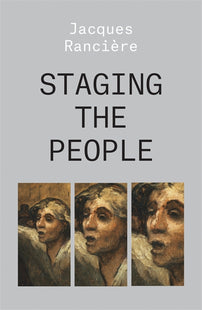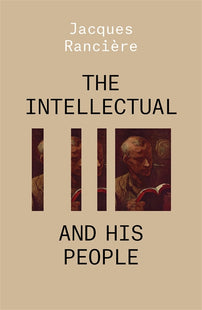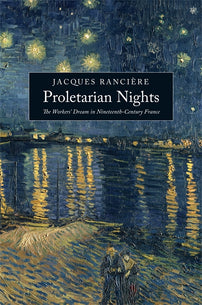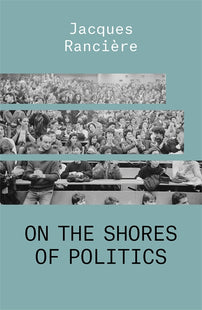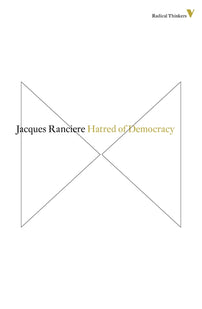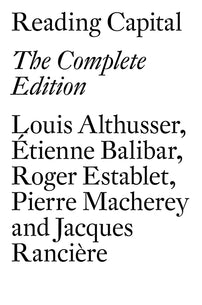Jacques Rancière Replies to Striking Railworkers
Railworkers engaged in the rolling strike action in the area to the north of Paris asked Jacques Rancière to answer a few questions connected with the current struggle against the rail reform and the meaning of solidarity.

First published at Révolution Permanente. Translated by David Broder.
Railworkers engaged in the rolling strike action in the area to the north of Paris asked Jacques Rancière to answer a few questions connected with the current struggle against the rail reform and the meaning of solidarity. Here the philosopher, egalitarian thinker, and "ignorant schoolmaster" offers his replies:
Anasse, a pointsman in Le Bourget: How can an intellectual today show solidarity with workers’ strike action?
I do not like the idea of "the intellectual," which supposes a sort of monopoly of insight, or indeed the posture of the intellectual who advertises his support for workers’ struggles. I think that it is for those waging a struggle to say what precise acts of solidarity they are expecting from everyone else, whether that means material aid or statements in their support. But the important thing is that the distance between the different situations and the different struggles is today tending to narrow. In the universities as in SNCF [the national rail network] and other fields of activity, we find the same thing under attack: namely, the existence of a world governed by solidarity, a world in which everyone has access to the same benefits in education, healthcare, transport or other services, independently of their social rank.
Karim, Landy maintenance centre: It is said that our status is a privilege dating back to a time that has now passed. In your view, what, today is a right and what is a privilege?
A privilege is an advantage that some particular social category enjoys in function of its difference, of its superiority over the rest, like the nobility of yesteryear had. A right, conversely, is something that you enjoy precisely insofar as you are the same as everyone else. A right is also something that has been won through a fight to impose equality. The railworkers’ status is something that was created when the popular movement imposed the existence of a public service that provides everyone the possibility of accessing the same services. The idea under attack from the powerful today is the idea that everyone can be educated, cared for, provided with transport, etc. under equal conditions. And in order to legitimise itself, this onslaught has to say that the social rights won in yesterday’s struggles are mere "privileges." It is true that other categories of workers have lost rights that the railworkers do still have. But those making a noise about the "privileged" really want to level things down: for everyone to lose these rights.
Laura, a pointswoman in Le Bourget: The strike could get tougher over time. They are talking about us as if we were taking people hostage. What do you think about this?
The rhetoric about "taking people hostage" is part of this same effort to discredit social struggles in the name of the idea that ordinary people are the real victims. But this is not simply an abuse of language. This use of words has to be seen in light of a very material reality. For several years we have seen a mounting attempt to criminalise all the forms of action through which workers in struggle go beyond the framework of politely venturing their demands, especially by kidnapping bosses and managers. Little by little, what they are trying to criminalise is social struggle itself. It is necessary to be attentive to the difficulties that the strike does cause a lot of people, but simultaneously refuse the blackmail that comes with the accusation of "taking people hostage."
[book-strip index="1" style="display"]